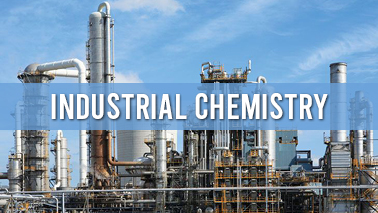Industrial chemistry, the branch of chemistry that applies physical and chemical processes to the transformation of raw materials into products that are of benefit to humanity, plays a crucial role in today’s world. This 1000-word article provides an in-depth overview of the processes involved in industrial chemistry, the challenges faced in the field, and the ongoing innovations driving the industry forward.
Introduction
Industrial chemistry is at the heart of the manufacturing sector, turning basic raw materials into a range of products, from plastics and pharmaceuticals to cosmetics and food additives. This field combines principles of chemistry with engineering to scale up chemical reactions from the laboratory to industrial production. Understanding the intricacies of industrial chemistry processes, the challenges faced, and the innovations reshaping the industry is essential for grasping its impact on modern life.
Key Processes in Industrial Chemistry
Raw Material Processing
The first step in industrial chemistry is the processing of raw materials. These materials, which can be natural resources like crude oil, minerals, or agricultural products, are processed to extract the specific chemicals needed for various products.
Chemical Reactions and Synthesis
At the core of industrial chemistry are the chemical reactions used to synthesize new substances. This includes a range of processes such as polymerization, esterification, and alkylation, among others.
Separation and Purification
Following synthesis, the resulting mixture often contains by-products or unreacted materials. Separation techniques like distillation, filtration, and chromatography are employed to isolate and purify the desired product.
Quality Control
Ensuring the quality and consistency of the final product is vital. Quality control processes involve rigorous testing to ensure that products meet the required specifications and standards.
Challenges in Industrial Chemistry
Environmental Impact
One of the significant challenges facing industrial chemistry is its environmental impact. The disposal of chemical waste, emissions from manufacturing plants, and the use of non-renewable resources are major concerns.
Safety Risks
Chemical manufacturing processes can pose significant safety risks, including chemical spills, explosions, and exposure to toxic substances. Maintaining safety standards is crucial to protect workers and the environment.
Economic Viability
Economic factors, such as the cost of raw materials, energy consumption, and market demand, greatly influence industrial chemistry. Balancing cost-effectiveness with quality and environmental responsibility is a constant challenge.
Regulatory Compliance
The chemical industry is heavily regulated to protect public health and the environment. Complying with these regulations, which can vary by region and are constantly evolving, requires ongoing vigilance.
Innovations in Industrial Chemistry
Green Chemistry
Green chemistry focuses on designing products and processes that minimize the use and generation of hazardous substances. This includes using renewable resources, developing biodegradable products, and implementing energy-efficient processes.
Nanotechnology
The application of nanotechnology in industrial chemistry has led to the development of materials with improved properties, such as increased strength, enhanced chemical reactivity, and better electrical conductivity.
Biotechnology
Biotechnology is increasingly being used in industrial chemistry for the production of chemicals, pharmaceuticals, and biofuels. Enzyme technology and microbial fermentation are examples of biotechnological processes being employed.
Process Intensification
Process intensification aims to make chemical production more efficient, reducing the size of the equipment needed, energy consumption, and waste production. This can involve using advanced catalysts, novel reactor designs, or alternative energy sources.
The Role of Industrial Chemistry in Sustainable Development
Circular Economy
Industrial chemistry is integral to the development of a circular economy, where waste and resource use are minimized. This involves recycling materials, developing sustainable manufacturing processes, and designing products for longer lifespans.
Renewable Energy
The chemical industry plays a key role in the renewable energy sector. Innovations in battery technology, solar cells, and biofuels are examples of how industrial chemistry is contributing to sustainable energy solutions.
Water Treatment
Industrial chemistry is essential in water treatment technologies. Chemical processes are used to purify water, treat wastewater, and desalinate seawater, addressing the global challenge of water scarcity.
Future Trends in Industrial Chemistry
Digitalization and Automation
The integration of digital technologies and automation in chemical manufacturing is set to increase efficiency and reduce human error. This includes the use of artificial intelligence for process optimization and predictive maintenance.
Advanced Materials
The development of advanced materials, such as smart materials that can change properties in response to external stimuli, is an area of growing interest in industrial chemistry.
Personalized Products
Advancements in industrial chemistry are leading to the possibility of personalized products, particularly in pharmaceuticals and cosmetics, tailored to individual needs based on genetic and biochemical profiles.
Conclusion
Industrial chemistry is a dynamic field that bridges science and engineering to produce a wide array of products essential to modern life. While the industry faces significant challenges, particularly in terms of environmental impact and safety, ongoing innovations are driving the field towards more sustainable and efficient practices. From green chemistry to biotechnology, the advancements in industrial chemistry danatoto











